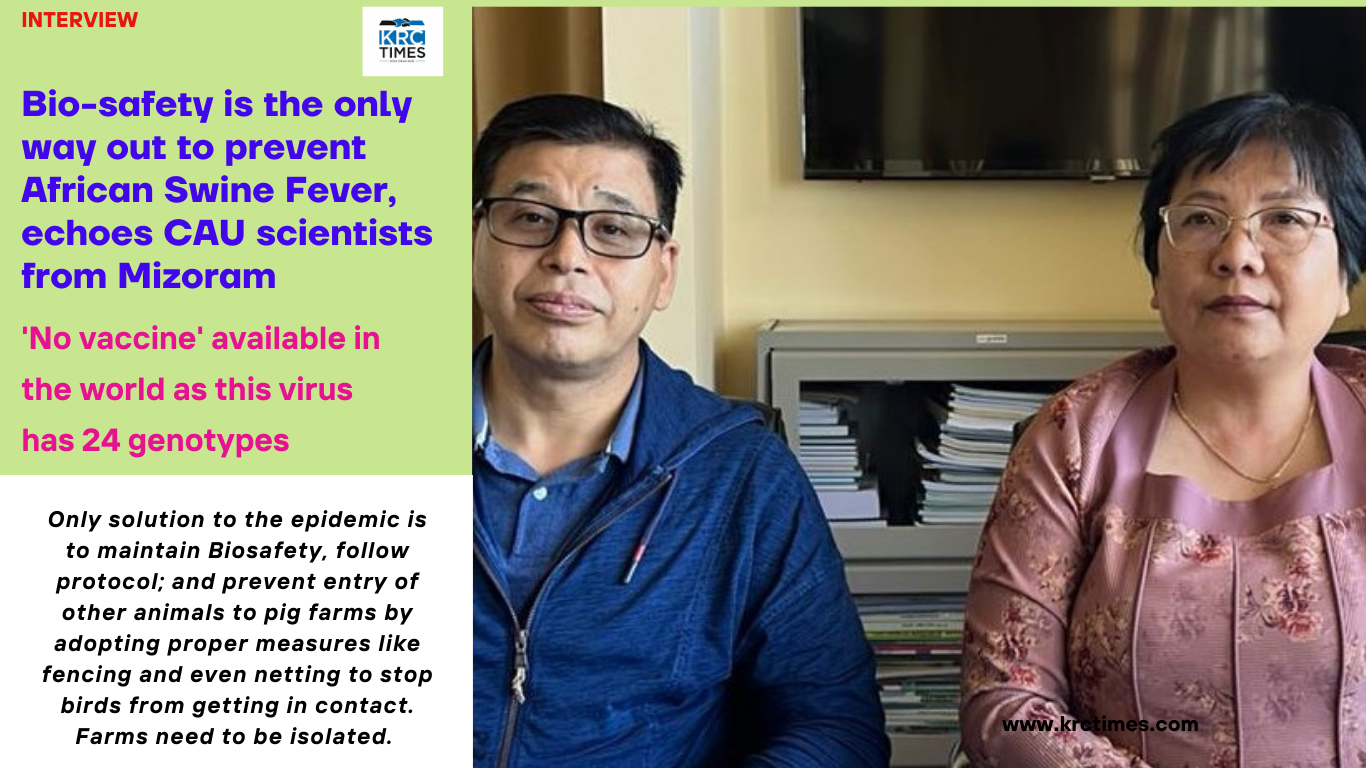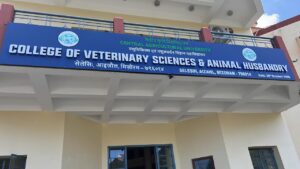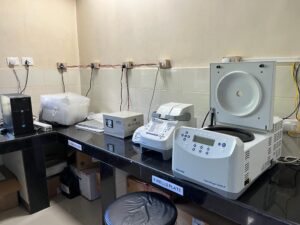‘No vaccine’ available in the world as this virus has 24 genotypes
 Biswadeep Gupta
Biswadeep Gupta

African Swine Fever (ASF) found in pigs has taken a big toll in the Northeastern region and Manipur has also been affected. In order to understand the epidemic, we spoke over phone with the Prof. Lalnuntluangi Hmar, Dean, College of Veterinary Sciences and Animal Husbandry, Aizawl (CVSAH) a constituent college under Central Agricultural University, Imphal. Prof. Hmar while giving a background of the intervention undertaken by her institute said that the African Swine Fever found in pigs is an exotic disease that is it is foreign in origin and it was first reported in Northeast India on 26 January 2020 in Arunachal Pradesh when many pigs were found dead in a river and subsequently reported in Assam in domestic pigs.
She explained that ASF has a 90-100% mortality rate as this is a double-stranded DNA virus and initially people thought swine fever was prevalent in pigs. But as the mortality rate increased in Mizoram our scientists under the leadership of Dr. Tridip Kumar Rajkhowa, Head of the Department of Veterinary Pathology, CVSAH. They collected some samples from the Aizawl area and on 6th April 2021 confirmed that it is the African Swine Fever (ASF) which is the reason for such an acute number of mortality among the pigs.

Immediately the findings were reported to the Veterinary Department of Mizoram and the government then formed a task force to address the epidemic she said. Prof. Hmar stressed the challenge faced during those times as there was a lack of awareness among farmers and the protocol suggested that within a 1 km radius of any reported infection have to be declared an ‘infected zone’ and all the pigs had to be quarantined. A further 9 km radius is to be under a ‘surveillance zone’ and the animals were to be weekly screened. Any slaughtering had to be done only after ‘testing’.
But Prof. Lalnuntluangi also informed that there is ‘no vaccine’ available in the world as this virus has 24 Genotypes and it is very difficult to make the vaccine. So the only way out was to make people aware, impose restrictions, and quarantine. The solution is to move, kill, and bury the animals which is known as the culling process. ‘Prevention is better than cure’ and there is no point crying for a vaccine, she echoed. However, she empathised with the farmers who lost economically as the Government imposed restrictions on slaughtering. Slowly with the increase in people’s awareness, the infection level has come down and now around 600 to 1000 animals are infected according to reports available.

While speaking to Dr. Tridip Kumar Rajkhowa, he informed that his team first did research using molecular techniques and genetic analysis to identify the gene type and could also identify that the ASF prevalent in the region was Gene type 2. He gave a historical perspective and informed that African Swine Fever in pigs was first reported in the year 1921 in East Africa in Nigeria and in 1950 it spread to Europe through sea ports mostly in kitchen waste. It reached the Caucasian region like Georgia and eastern Russia between 1950-2007 and was reported in China in 2020.
As the pig industry is highest in China, it spread across South Asian countries, and with northeastern India’s porous border, the virus was first reported in Arunachal Pradesh. As it is a trans-border disease, now the whole of northeast India is being contaminated. Dr. Rajkhowa also informed that the virus has now spread the whole of India and is being heavily reported in Northern as well as Southern India.

Both the professors of Central Agricultural University echoed that the only solution to the epidemic is to maintain Biosafety, follow protocol; and prevent entry of other animals to pig farms by adopting proper measures like fencing and even netting to stop birds from getting in contact. Farms need to be isolated.
They also informed that with the level of awareness increasing the small farmers are now able to save piglets and repopulate and all stakeholders need to be responsive to the challenge.
Campaign | KRC Foundation



